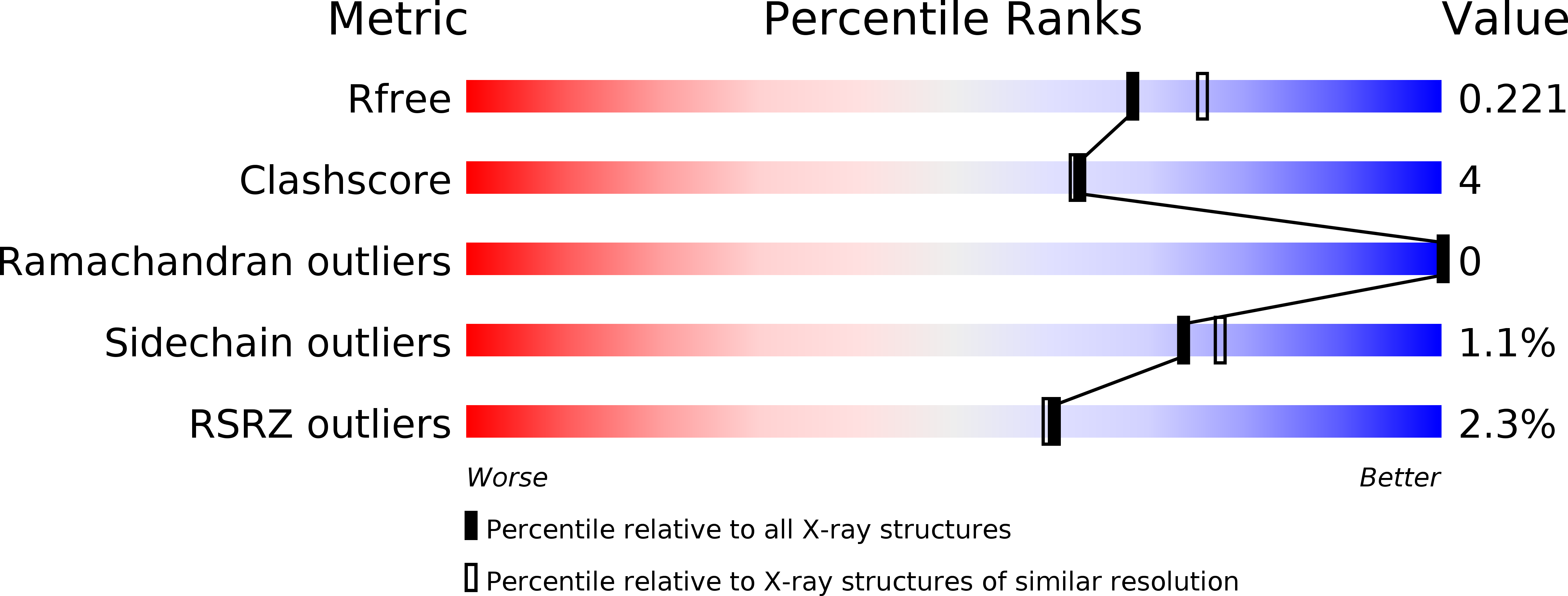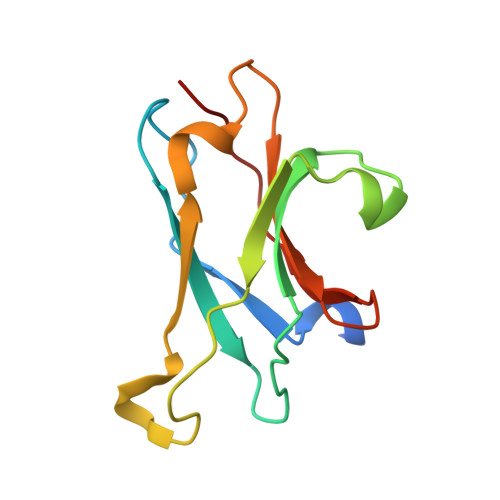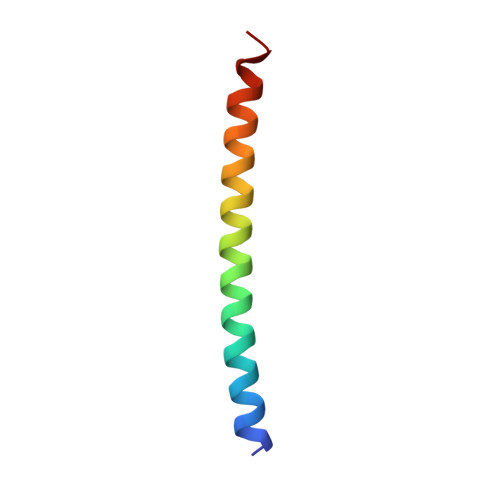Mechanistic insights into the interactions of NAP1 with the SKICH domains of NDP52 and TAX1BP1
Fu, T., Liu, J., Wang, Y., Xie, X., Hu, S., Pan, L.(2018) Proc Natl Acad Sci U S A 115: E11651-E11660
- PubMed: 30459273
- DOI: https://doi.org/10.1073/pnas.1811421115
- Primary Citation of Related Structures:
5Z7A, 5Z7G, 5Z7L - PubMed Abstract:
NDP52 and TAX1BP1, two SKIP carboxyl homology (SKICH) domain-containing autophagy receptors, play crucial roles in selective autophagy. The autophagic functions of NDP52 and TAX1BP1 are regulated by TANK-binding kinase 1 (TBK1), which may associate with them through the adaptor NAP1. However, the molecular mechanism governing the interactions of NAP1 with NDP52 and TAX1BP1, as well as the effects induced by TBK1-mediated phosphorylation of NDP52 and TAX1BP1, remains elusive. Here, we report the atomic structures of the SKICH regions of NDP52 and TAX1BP1 in complex with NAP1, which not only uncover the mechanistic bases underpinning the specific interactions of NAP1 with the SKICH domains of NDP52 and TAX1BP1 but also reveal the binding mode of a SKICH domain. Moreover, we uncovered that the SKICH domains of NDP52 and TAX1BP1 share a general binding mode to interact with NAP1. Finally, we also evaluated the currently known TBK1-mediated phosphorylation sites in the SKICH domains of NDP52 and TAX1BP1 on the basis of their interactions with NAP1. In all, our findings provide mechanistic insights into the interactions of NAP1 with NDP52 and TAX1BP1, and are valuable for further understanding the functions of these proteins in selective autophagy.
Organizational Affiliation:
State Key Laboratory of Bioorganic and Natural Products Chemistry, Center for Excellence in Molecular Synthesis, Shanghai Institute of Organic Chemistry, University of Chinese Academy of Sciences, Chinese Academy of Sciences, 200032 Shanghai, China.
















